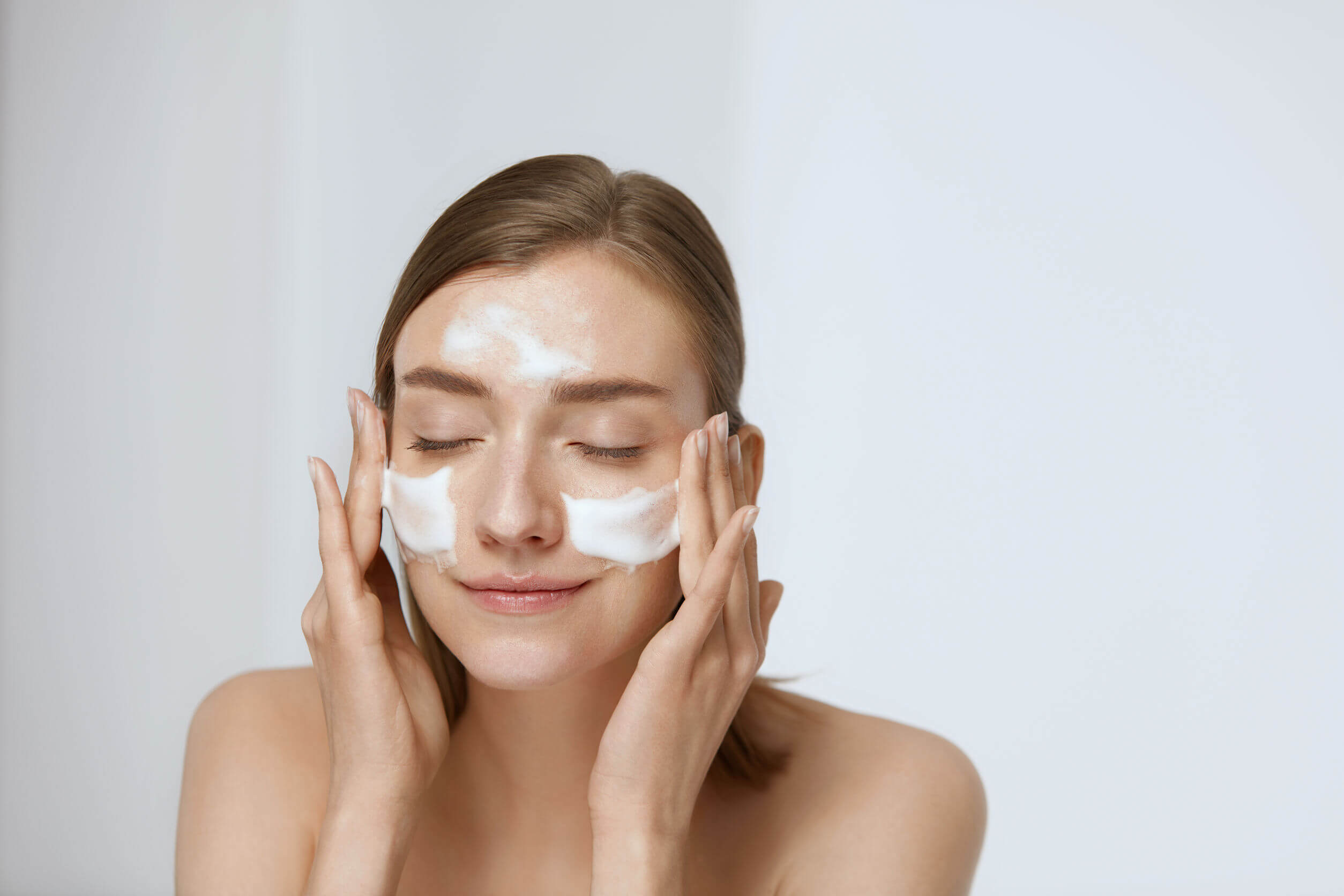Facial Cleansing Routine for Pregnant Women

A good facial cleansing routine for pregnant women is one of the most requested procedures in recent times. The stage of pregnancy is one of the moments where a woman’s body undergoes a number of alterations. From hormonal changes to cosmetic changes, pregnancy is a time when more than 90% of women experience significant and complex changes in their skin.
Skin changes during pregnancy
For many women, pregnancy is synonymous with radiant skin, rosy cheeks, and shiny hair. However, there are cases in which unattractive changes such as acne, dark spots, and stretch marks take place.
The stimulation of the sebaceous glands makes the skin look brighter due to the increased production of sebum. In addition, the increase in blood flow on the skin’s surface causes greater oxygenation of the epithelial cells.
The endocrine glands of the fetus produce high levels of corticosteroids, the acceleration of metabolism, and an increase in the ranges of estrogen and progesterone, hormones responsible for all changes in the skin during pregnancy.

A good facial cleansing routine for pregnant women
Skincare for pregnant women is often an area of concern. There are even certain aesthetic treatments or cosmetic products that aren’t recommended during gestation.
However, the three steps to follow in any facial cleansing routine, even during pregnancy, are cleansing the face, moisturizing it, and protecting it from the sun’s rays. Put them into practice!
Skin cleansing
When we talk about cleansing, we mean cleansing the skin in the morning and at night. To carry out this step, you can use micellar water or a specific cleansing lotion for oily or sensitive skin.
There are different vehicles for these products and it’s best to choose the most appropriate one for each skin type:
- Gel
- Water
- Milk
You can cleanse your skin with the help of cotton, a facial cleansing disc, or simply with your fingertips. The movements should be smooth, without producing friction in order to avoid irritation.
It’s best to use a gentle cleanser that’s not very astringent twice a day. During the night, it helps remove traces of makeup and dirt from the skin that may remain from the day.
Facial hydration: One of the most important steps in a good facial routine for pregnant women
After cleaning, the next step is to provide the skin with a nutrient and moisturize it. It’s one of the most important steps because it maintains the correct levels of water so that the skin’s surface maintains its elasticity and protective barrier.
There are different assets suitable for use in a good facial cleansing routine during pregnancy. Some of them are vitamin C, hyaluronic acid, antioxidants, etc. Always choose products that are suitable for sensitive skin and non-comedogenic.
When a moisturizer contains humectants, the water content of the skin increases more quickly, but that doesn’t mean that it reduces transepidermal water loss.
You may be interested: The Importance of Vitamin A in Children and Pregnant Women
Above all, sun protection
Sunscreen is very important in pregnant women due to the great predisposition to develop hyperpigmented macules. In fact, not only pregnant women should use sunscreen, but everyone once they leave their homes.

Ideally, apply sunscreen in the morning, with a minimum SPF of 30, and repeat the application every two hours. There are different varieties on the market, with toner, with hyaluronic acid, in spray form, etc. The constant use of sunscreens prevents the appearance of unwanted melasma or dark spots.
Cosmetics or products to avoid
During pregnancy, the skin becomes more sensitive and the products that you used to use on a daily basis will no longer be recommended for at least 9 months. Therefore, some of the assets or compounds that must be avoided are the following:
- Retinol or vitamin A
- Caffeine
- Essential oils
- Salicylic acid
- Glycolic Acid
- Hydroquinone creams
In pregnant women, aesthetic treatments, such as the application of botulinum toxin, aren’t recommended. In addition, the use of minoxidil as a treatment for alopecia should be avoided; the FDA has placed it within the pregnancy category C group of drugs.
Facial cleaning in pregnant women and medical consultation
If you have any doubts about the cosmetics that are suitable for use during this period, it’s best to consult a doctor, who will provide advice adapted to your own medical history and needs.
In turn, they should be the one to make the final decisions regarding skin care products used during conception, pregnancy, and lactation.
All cited sources were thoroughly reviewed by our team to ensure their quality, reliability, currency, and validity. The bibliography of this article was considered reliable and of academic or scientific accuracy.
- Pavicic T, Gauglitz GG, Lersch P, Schwach-Abdellaoui K, Malle B, Korting HC, Farwick M. Efficacy of cream-based novel formulations of hyaluronic acid of different molecular weights in anti-wrinkle treatment. J Drugs Dermatol. 2011 Sep;10(9):990-1000. PMID: 22052267.
- Changes in Cosmetics Use during Pregnancy and Risk Perception by Women. Int J Environ Res Public Health. 2016 Mar 30;13(4):383. doi: 10.3390/ijerph13040383. PMID: 27043593; PMCID: PMC4847045.
- Goh CL, Dlova CN. A retrospective study on the clinical presentation and treatment outcome of melasma in a tertiary dermatological referral centre in Singapore. Singapore Med J. 1999 Jul;40(7):455-8. PMID: 10560271.
- Kumari R, Jaisankar TJ, Thappa DM. A clinical study of skin changes in pregnancy. Indian J Dermatol Venereol Leprol. 2007 Mar-Apr;73(2):141. doi: 10.4103/0378-6323.31910. PMID: 17458033.